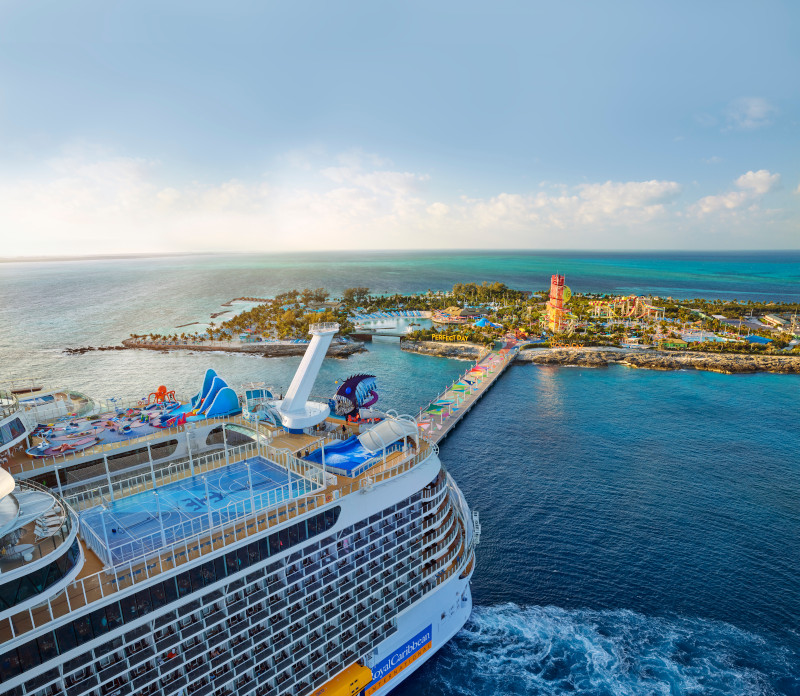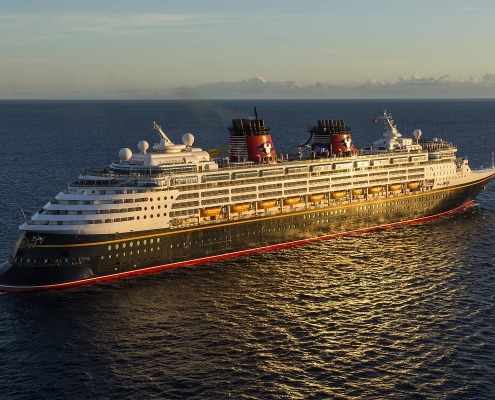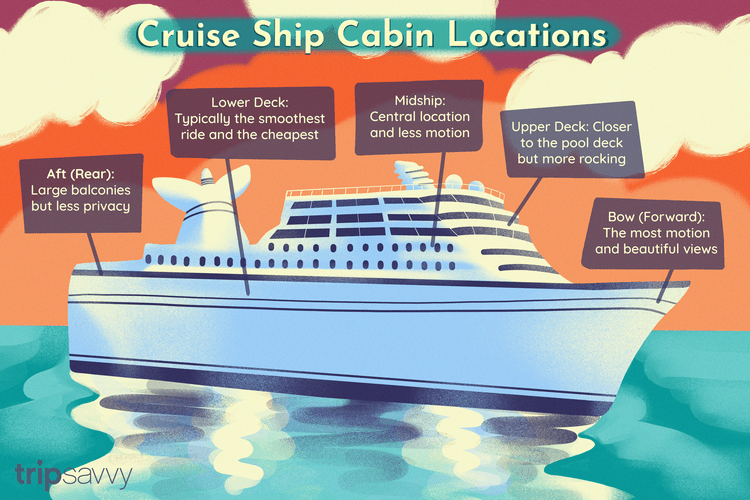Latest Cruise News
Late Friday, Carnival Cruise Line announced it would remove vaccination requirements for passengers sailing on its cruises, with the exception of sailings scheduled to call on ports in Canada, Bermuda, Greece and Australia.
The line becomes the latest to adjust its policies and protocols around COVID-19, following on the heels of major announcements from Norwegian Cruise Line Holdings, Princess and Royal Caribbean, along with minor tweaks to policies from lines including Cunard, and UK-based P&O Cruises.
Beginning with departures taking place on Tuesday, September 6, 2022 or later, Carnival will eliminate the need for fully-vaccinated passengers to have a negative, pre-departure COVID-19 test, and will allow unvaccinated passengers to set sail, with the latter providing a negative test result at embarkation.
Fully vaccinated guests must still provide proof of vaccination in order to be eligible to embark without a pre-cruise COVID-19 test. Carnival states guests under the age of five years are exempt from vaccination and testing requirements from the United States, and under the age of 12 from sailings that depart from Australia.
The above changes apply to all voyages under 16 nights in duration — most of Carnival Cruise Line’s sailings fall into this category. Sailings over 16 nights, plus sailings to Canada, Bermuda, Greece and Australia, still require passengers to be fully vaccinated and tested against COVID-19.
“Our ships have been sailing very full all summer, but there is still room for more of our loyal guests, and these guidelines will make it a simpler process, and make cruising accessible for those who were not able to meet the protocols we were required to follow for much of the past 14 months,” said Christine Duffy, president of Carnival Cruise Line.
Royal Caribbean and Celebrity
Royal Caribbean and Celebrity Cruises have updated their vaccination protocols to allow unvaccinated passengers to sail on their ships leaving from select homeports as cruise lines around the world begin easing mandates in step with the broader travel industry.
The new changes — which take effect on both lines as of September 5, 2022 — apply to Royal Caribbean cruises departing from the ports of Los Angeles, Galveston, New Orleans and all European homeports.
For Celebrity Cruises, the change applies to all sailings departing from Los Angeles, the UK and Europe, with the exception of Iceland.
For cruises departing from any other homeports, and for all sailings departing before September 5, 2022, Royal Caribbean and Celebrity will continue to require passengers 12 and older to be fully vaccinated and tested against COVID-19.
Royal Caribbean is also working with local governments in the Eastern Caribbean to align on vaccination requirements for more itineraries and expects to have more information in the coming days.
For the above ports, unvaccinated passengers will still be required to meet testing mandates before embarking. Unvaccinated passengers will still need to observe the requirements of the ports of call they visit on their itineraries. For instance, Grand Cayman only allows visitors to disembark if they have a valid vaccination card. Spain and Greece both require unvaccinated visitors to take a COVID-19 test onboard before being allowed to disembark in ports of either country.
This latest update in vaccination protocols for Royal Caribbean and Celebrity follows Norwegian Cruise Line Holding’s announcement on August 8th, that its cruise brands — including Norwegian, Oceania and Regent Seven Seas — will allow unvaccinated travelers to cruise again, provided their itinerary does not include places that still require proof of vaccination, like Canada.a
Norwegian Cruise Line
Norwegian Cruise Line Holdings, which includes popular cruise brands Norwegian Cruise Line, Oceania and Regent Seven Seas, has modified its testing and vaccination requirements, allowing unvaccinated travelers to cruise again and removing the pre-cruise testing requirement for fully vaccinated passengers.
Effective as of September 3, 2022, all three brands will allow fully vaccinated passengers over the age of 12 to embark without the need for a pre-cruise test for COVID-19. Unvaccinated passengers 12 and over will also be able to board, will need to supply proof of a medically supervised negative PCR or Antigen test taken no more than 72 hours prior to embarkation.
As of September 3, passengers aged 11 and younger will be able to embark without vaccination or testing requirements.
The move is a major shift for Norwegian Cruise Line Holdings, which was a staunch advocate for fully vaccinated guests when cruising resumed in 2021.
“We have been waiting a long time for this moment to arrive. The world has been re-opening quickly and once more, we are pleased to welcome all travelers, of all ages, to safely explore the world with comfort and ease aboard the small, luxurious ships of Oceania Cruises,” stated Howard Sherman, President and CEO of Oceania Cruises, in a statement sent to media.
Vaccination, Testing Requirements Still In Place for Some Countries
While Norwegian Cruise Line Holdings is altering its requirements for U.S.-based sailings as of September 3, some countries will still require testing, vaccination, or both.
Passengers booked on itineraries starting in or calling on Canadian Ports will not be able to cruise if they are over the age of 12 and unvaccinated. This includes Alaskan cruises departing from Seattle and calling on Victoria, British Columbia — even for those who do not plan to leave the ship in the capital city.
Canadian ports still require the use of the ArriveCAN app, and still require a negative pre-cruise COVID-19 test.
Other countries requiring specific vaccination and testing requirements include Bahamas, Bermuda, Cayman Islands, Greece, Honduras, Italy, Puerto Rico, and Spain. (Norwegian Cruise Line has a detailed list of requirements for each country here.)
Norwegian Cruise Line Holdings is speaking to investors tomorrow during its second-quarter earnings call. Cruise Critic will update this article with more information as it becomes available.




